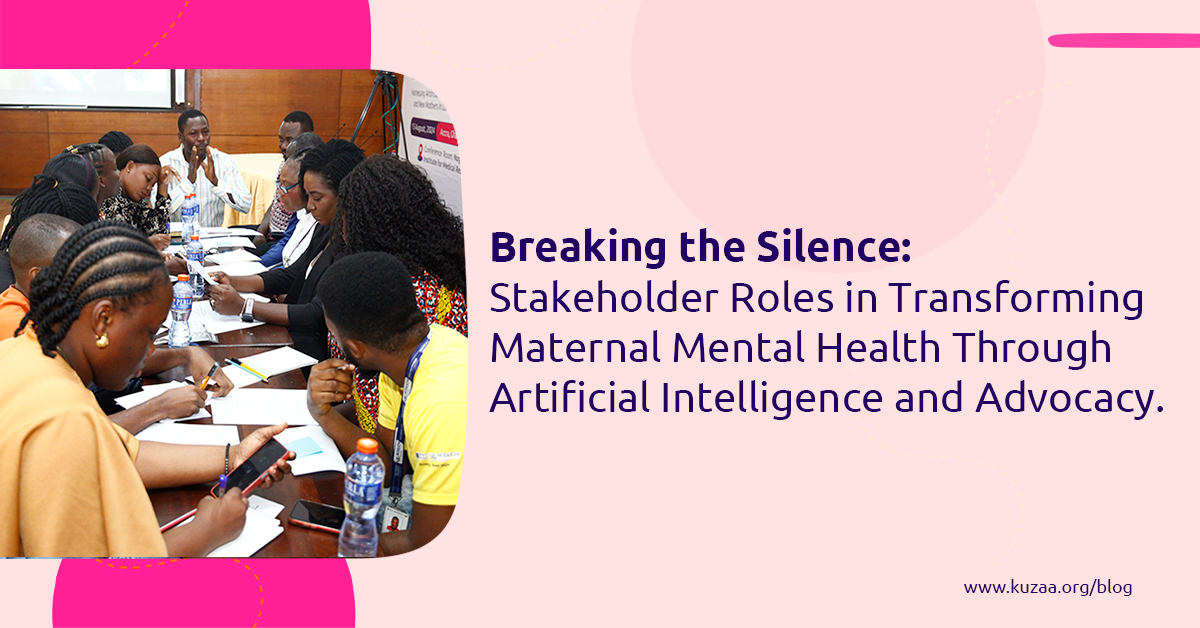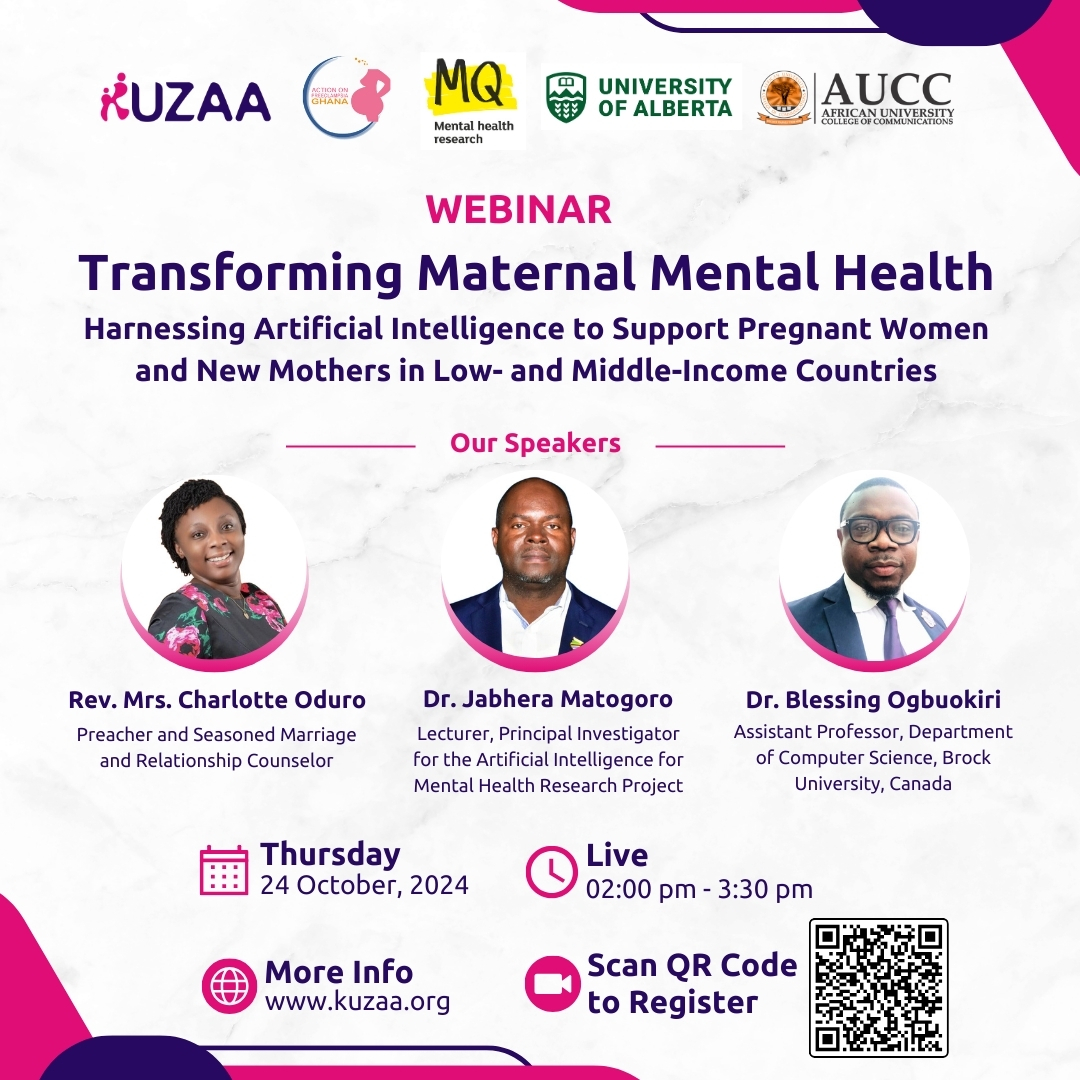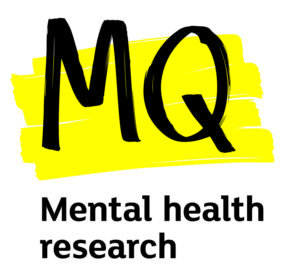Perinatal depression and anxiety (PDA), an uninvited guest, crept into the life of a first-time mother of a newborn who neither understood such feelings nor knew how to confront them. It started subtly during her pregnancy, with occasional sessions of sadness, intense worry and fear about the impending birth, becoming and adjusting to life as a parent. She thought it was normal, given the uncertainty that surrounds pregnancy and the arrival of a new baby. But after her child was born, the feelings intensified.
PDA, a mental health condition, affects women during pregnancy (antenatal period) and up to a year after childbirth (postnatal period). It is more than just the “baby blues” that many new mothers experience; it’s a severe, persistent feeling of sadness and anxiety that can make everyday tasks feel challenging. For this mother, PDA means feeling disconnected from her baby, struggling to bond, and often feeling guilty and ashamed for not experiencing the joy she thought she should.

The symptoms of PDA are varied and complex. She could cry out of the blues, troubled by a deep sense of hopelessness and worthlessness. Sleep may become a double-edged sword—either she struggles to sleep, her mind racing with anxiety, or she wants to sleep all the time, trying to escape the heavy burden of her thoughts. She may lose interest in activities she once enjoyed, even the simple pleasures of chatting with friends and watching a favorite TV series. Her anxiety level can be overwhelming, manifesting as constant worry about her baby’s health and safety, often checking on the baby repeatedly throughout the night.
The causes of PDA are manifold. For our first-time mother, it was a combination of hormonal changes, the immense stress of caring for a newborn, and a history of depression that she thought she had overcome. Her support system was also strained; her partner was working long hours, and her parents lived far away. Despite being surrounded by people who loved her, she felt isolated and alone. The societal pressure to be the perfect mother only added to her perceived sense of inadequacy.
The effects of PDA showed up in all aspects of her life. Her relationships suffered; she withdrew from friends and family, unable to explain why she felt the way she did. The lack of connection with her baby made her feel even more isolated, feeding a hurtful cycle of guilt and despair. Her physical health began to decline as well, with frequent headaches and a constant feeling of fatigue.
But help soon came! A routine visit to her obstetrician allowed her to share her feelings in a safe environment. Her doctor listened with compassion and understanding, explaining that PDA was a common condition and not a reflection of her abilities as a mother. The doctor suggested several treatment options.

After sharing the options with her family, therapy was the first option of support they agreed with, so she began seeing a counselor who specialized in perinatal mental health. Through their sessions, she learned coping strategies and began to unpack the overwhelming feelings that had been consuming her. She found solace in support groups, connecting with other mothers who were experiencing similar struggles. These connections made her feel less alone and more understood. Yet, therapy alone was not the full answer. Her doctor explained that medication could also play a crucial role in her healing process.
The combination of therapy and medication could provide a more robust foundation for her recovery by stabilizing her mood and reducing her anxiety. After careful consideration and consultation, she decided to try an antidepressant. The medication, along with therapy, helped to stabilize her mood and reduce her anxiety, making it easier for her to manage daily tasks and bond with her baby. In addition to professional help, she made lifestyle changes by visiting postnatal care clinics in her community to socialize with other new mothers. This helped her to calm her mind. Regular exercise, even just a 30-minute walk within her community, made a significant difference in her overall well-being. She reached out to her family and friends, asking for help and accepting their support, when things were overwhelming.
Despite these treatment options, she still had difficult days, but they were fewer and less intense. She started to feel moments of joy and connection with her baby, appreciating the small milestones and cherishing the growing bond. Her journey with PDA taught her resilience and the importance of seeking help. Life went on with its usual hustle and bustle, but for this first-time mother, every small step forward was a victory. She learned that it was okay to not be okay and that reaching out for help was a sign of strength, not weakness. Through her struggle with PDA, she found a deeper understanding of herself and the profound impact of compassion and support.
Thank you for reading, watch out for the next episode!!!










